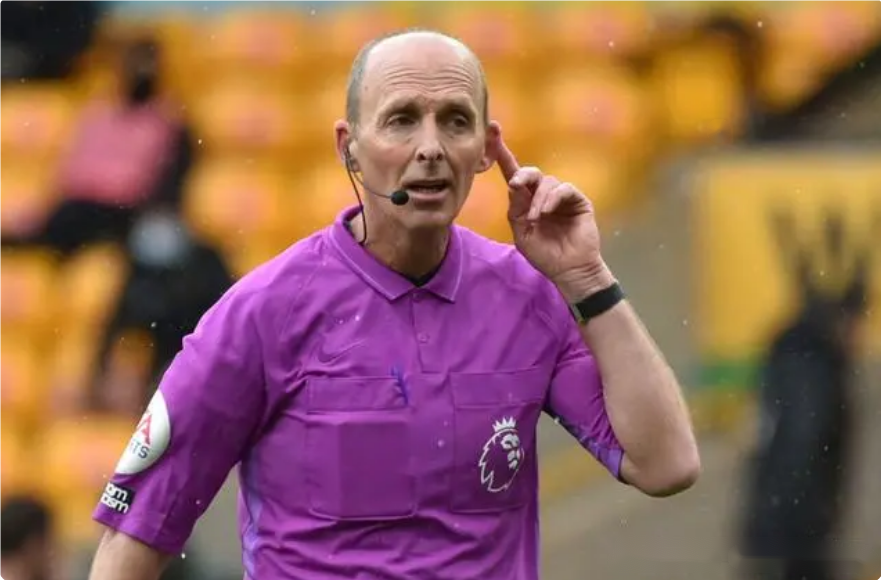Decision pending: VAR in the EFL
Technology, absurdity and priority – why fans should turn their back on Virtual Assistant Refereeing.
Sam Parry: The Times reports that the EFL is to assess “all options” for introducing VAR technology to the Championship, League One, and League Two. Behind that window on the advent calendar, there is a bleak picture, bordering on absurd. We should close it before it’s too late.
VAR as technology
From the washing machine to the cordless vacs and every white good in between, the rapacious inventiveness of the market has freed society from countless drudgeries. Very few are nostalgic for the crank of the mangle or the scratching of a quill. At the same time, technology’s proliferation has delivered us Clippit (the useless Microsoft Office Assistant), NFT artwork and VAR. ‘Fail fast’, indeed.
VAR’s most ardent defenders cast the naysayers as technophobes, nostalgia merchants and cranks, but that isn’t fair. To reject the ‘innovation’ isn’t to be anti-tech. Never forget that the Luddites smashed up steam-powered looms because they actually worked with a greater economy than what came before. VAR does not.
Since VAR’s introduction, no right-minded person could describe Premier League football matches as an improved spectacle. Plenty of wonky-minded people have argued that reducing human error is worth reducing human pleasure. I politely disagree. However, I’m not immune to the charge of complaining when poor officiating goes against my club. That’s the rub; the rough to match the smooth enjoyment of the greatest sport on Earth. VAR might have prevented the Hand of God but its use guarantees ever-increasing interference – there’s no way around that.
Whether it’s missed incidents, phantom goals or overzealous officiating from an interventionist cabal operating out of a business park in Uxbridge, football in the era of VAR is a withering product for most fans. When a referee gets it wrong, the game moves on. When VAR gets it wrong, it establishes a whole new kind of conversation; a tedious pattern of talking points and arguments about everything but the sport itself.
That’s why the EFL’s jealous peeking into the top-flight garden surprises me. There is a ready-made identity to the Championship, League One and League Two, and part of that is a big badge reading: We are not the Premier League. I wear it with pride – because EFL football, for all its difficulties, clings on to an intangible sense of fun, enjoyment and competition.
Of course, VAR wasn’t introduced to take the fun away. It was introduced for reasons of sporting integrity, making football fairer by ensuring accurate decisions on critical incidents such as goals, offsides and penalties. "VAR is, and remains, a very effective tool in supporting the match officials on the pitch,” said Tony Scholes, the Premier League's chief football officer, earlier this year. Indeed, VAR gets most decisions right – eventually. But at what cost?
VAR as absurdity
The EFL is reportedly considering a version of VAR known as Football Video Support, which would offer a challenge system in the mold of those seen in high-scoring sports such as tennis or cricket.
In a low-margin sport, however, interruptions can kill momentum. You can well imagine a manager using a challenge as a vehicle for time-wasting – a new tool in the arsenal to disrupt the other side’s tempo. Or how about one manager amongst the 72 going on strike, refusing to use the system as a public rejection of VAR? These are back-of-a-fag-packet concerns, but they aren’t unrealistic. Still, the indifference towards the Ghosts of Christmas Yet to Come will follow as an extreme interpretation of the tech bro mantra: move fast and break things.
Football is a game of rhythm, played within an oblong and decided by goals. The eye scans the pitch as play moves one way and then the other. For the longest time, this was generally accepted as a reasonable way of things, but for the past five years or so, football has been interrupted by the spectacle of a baffled man with a Bluetooth headset, looking every inch like a chef who missed “peanut allergy” on the check.
I refer VAR’s defenders to that absurd image, one teeming with -isms and -esques: Kafka, Orwell, Python, Partridge. I can only laugh when Scholes suggests reliving decisions again and again as the solution to VAR’s ills:
“My personal view is we're on a journey and that we'll get to a point where both the video and the audio is played live and then played again afterwards to explain the decision.”
VAR is a dish best not served at all. It cannot help but leave its fingerprints on a football match. It cannot tread lightly on our matchday experience. Its medium – television – is the message. When the game is stopped and Stockley Park is consulted, a picture of delicious sporting integrity and fairness is placed above a plate of ubiquitous slop. And the slop tastes bad.
As a fan, I’ve witnessed three VAR seasons in the stands, and in all of them, the feeling of scoring has been diminished by the possibility of “what if”? As soon as the ball crosses the line in added-on time, fans are treated to Schrödinger's last-minute winner – joy and dread, excitement and disappointment, the goal and the non-goal all at once. It’s excruciatingly dull, dim and crass.
It doesn’t have to be this way, though. In Sweden, clubs have rejected VAR for precisely this reason. "We have prioritised the feelings and the explosion that you have inside stadiums when you score," said Niclas Carlnen, the chief executive of Malmö. Priorities… now there’s a word.
VAR as priority
I am not Against Modern Football. What troubles me is who and what is prioritised, and in which order. As fans grapple with rising ticket prices, as clubs struggle to stay solvent, as rogue owners take charge, as the gap between the haves and have-nots grows bigger, as the cost of VAR hits club coffers, and as sportswashing becomes a profitable operating model, it’s the people who turn up who continually lose out. But don’t worry, ’cos… VAR. It is waved around as a solution to some deeper issue of integrity and fairness when it cannot address the real challenges facing the game.
Whether it’s IFAB, the Premier League or now, potentially, the EFL, the top brass have a grip on reality so loose they couldn’t shake a snowflake from a feather in a hurricane. Theirs is a world of measures, decisions and boardrooms with opaque windows. Ours is a world of trains, planes and autocorrected messages on the “Away Days” WhatsApp group.
Fans are a kinetic force who move and jump and scream and shout and, more than anything, are taken for granted. It’s our game, and to stop the rot, we have to vote with our feet. But I’m realistic enough to know – and football’s rule-makers are insidiously aware – that we are the stickiest customer base around.
Rejecting VAR in the EFL is no easy task. Fans of the 72 clubs can’t and won’t abandon their club. But we can challenge the spectacle. Why not turn our back on VAR? Quite literally. Fans in grounds up and down the country turning away from the screen every time those two little words pop up: DECISION PENDING. Why not force those pictures down the barrel of the camera?
Mad, bad or fad, it’s not VAR’s technology that makes me sick. It’s not the cost to the clubs, the impossibility of celebrating a goal, nor the unnecessary drudgery. What I hate most about VAR is how it reveals both the diminishing position of match-going fans and the callous response of football’s higher-ups: no one likes it, we don’t care.





Fully agree with this - it is the accusation of being some sort of luddite if you are opposed to VAR that I find most annoying. If it provided a greater benefit than downside I would be all for it. It doesn't. And it can't. Of all the issues facing football this really isn't top of the list.
A witty person (ie me) once described it as "a solution that doesn't work for a problem that doesn't exist". I invite you all to use that line and claim it for yourselves. No thanks needed.
PS - Merry Christmas!
Good article, two points, a full roll out of GLT across the EFL feels more pressing, and secondly, just improving the standard of referring in the EFL is the better option, it’s pretty awful at the moment. You can’t make up for bad refs by more bad refs in Stockley park making bad video decision